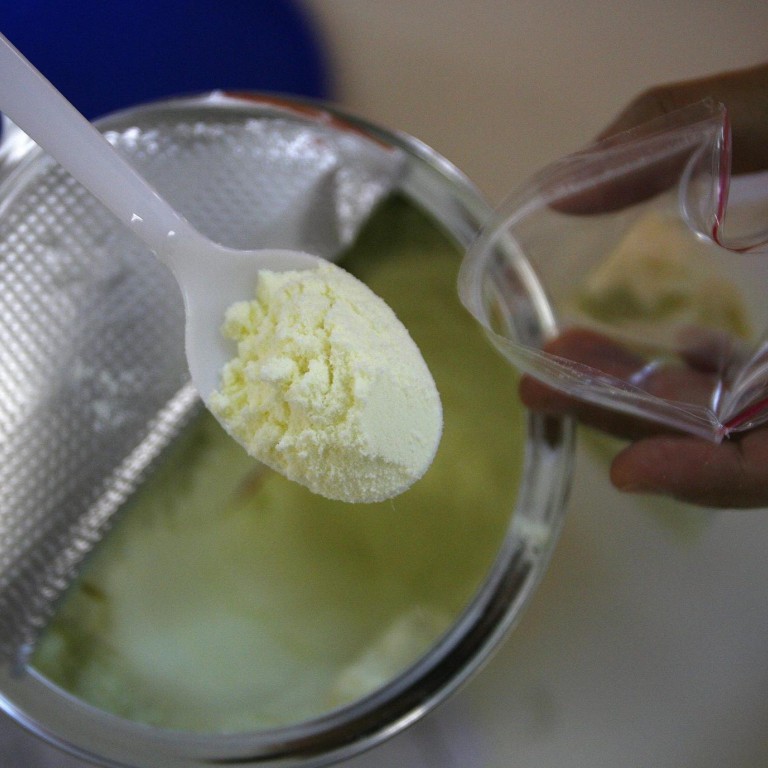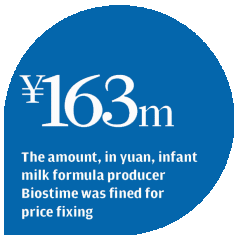
Fines point to more action over baby milk by China watchdog
Penalties imposed over price fixing by baby milk powder producers show NDRC is ready to tighten antitrust enforcement on the mainland
Beijing's decision to slap record fines totalling 668.7 million yuan (HK$840.8 million) on six producers of infant milk formula for price fixing has set the stage for further antitrust enforcement.

The action would send a warning to other sectors, such as telecommunications and consumer products, lawyers said.
The six producers fined were Hong Kong-listed Biostime International, Mead Johnson Nutrition and Abbott from the United States, FrieslandCampina from the Netherlands, Dumex from France and Fonterra from New Zealand.
Analysts said the enforcement action would further bring down prices of infant milk formula and pacify a public outraged that a daily necessity had been plagued by safety issues and high prices.
Mead Johnson, Danone and Wyeth were among the producers that lowered prices by 6 per cent to 20 per cent last month when news of the NDRC's investigation into price fixing broke.
A Beijing-based mother welcomed the enforcement news.
She said a 900 gram can of Mead Johnson baby formula now costs 200 yuan, compared with 178 yuan for a similar can of Yili baby milk powder, a domestic brand.
"I buy baby milk powder from online portals rather than in shops, even though foreign brands say their products are tailor-made for mainland babies," she said, displaying scant confidence in local suppliers of dairy products.
"I just want the same product sold everywhere."
At stake is an almost US$16 billion infant formula market that research firm Mintel estimates is more than four times the size of the US market.
Mintel figures show price rises of between 25 per cent and more than 40 per cent for some foreign brands on the mainland since 2008. Annual food inflation in the country has averaged about 7.8 per cent since 2008.
In the latest use of the mainland's five-year-old antitrust law, Guangzhou-based Biostime was fined 162.9 million yuan, the equivalent of 6 per cent of its sales on the mainland last year, the heaviest penalty in proportional terms.
Biostime said it would comply with the punishment and promised to improve its internal controls. The company's shares yesterday fell 1.8 per cent to close at HK$43.70 in a market that rose 0.31 per cent.
"The NDRC does have teeth," said Peter Wang, a Shanghai-based partner with law firm Jones Day. "The amount of the fines is not a small number, especially by Chinese standards.
"The NDRC appears to have been even-handed in this case, punishing Chinese and foreign firms.
"This is still the beginning stages of antitrust enforcement, particularly on resale price maintenance and outside the merger approval area."
A Shanghai court found Johnson & Johnson guilty last week of "vertical monopoly" for setting minimum prices for its surgical sutures.
And in February, the NDRC imposed fines totalling 449 million yuan on the mainland's two top (white liquor) makers, Moutai and Wuliangyi Yibin, for penalising distributors that sold their products at prices lower than the producers had requested.

